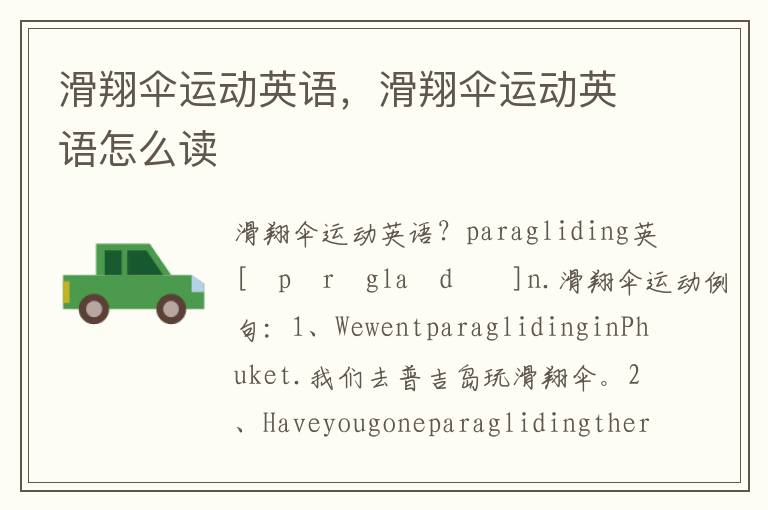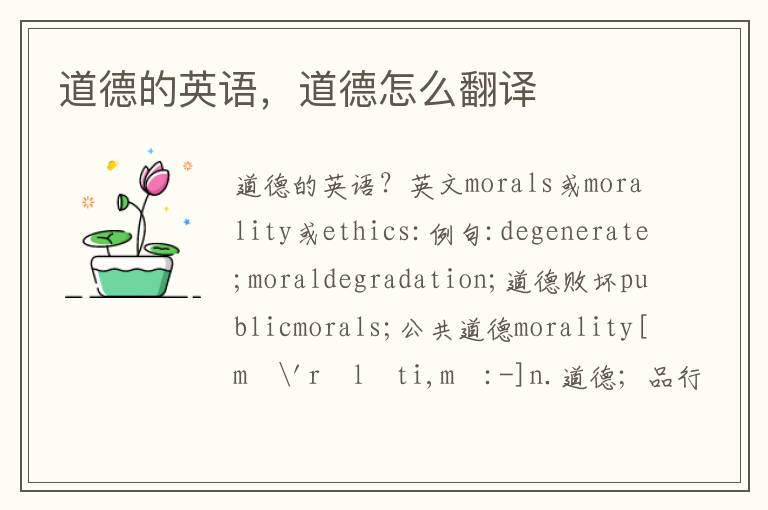【简介】感谢网友“雕龙文库”参与投稿,这里小编给大家分享一些[db:SEO标题],方便大家学习。
One of Stephen Covey’s favourite tricks, described in The 7 Habits of Highly Effective People, was to imagine his own funeral. He would think about the flowers, the faces of the bereaved and the eulogies in order to help instil his habit #2: Begin with the end in mind.
斯蒂芬·柯维(Stephen Covey)在他的《高效能人士的七个习惯》(The 7 Habits of Highly Effective People)一书中描述了自己最喜欢的一种把戏:想象自己的葬礼。他会想到鲜花、亲人的面庞和悼词,这是为了帮助养成他的第二个习惯:以终为始。
For Covey, who died this week aged 79, the funeral scene is about to be played out for real. The chances are that it will be to his liking.
对于在今年7月16日辞世、享年79岁的柯维而言,这个葬礼场景变成了现实。这场葬礼大概会让他感到满意。
Already, the eulogies are flowing in from rival management gurus: Tom Peters has likened him to Nelson Mandela while Clayton Christensen – a fellow Mormon – has said that Covey changed his life. He told a story about how Covey, when at Harvard Business School, shunned the bar-room and went instead to Boston Common with a soap box, which he climbed on to and gave a jolly good sermon about the life of Jesus Christ.
同行的管理大师们纷纷发表了悼词。汤姆·彼得斯(Tom Peters)把他比作纳尔逊·曼德拉(Nelson Mandela)。同为摩门教徒的克莱顿·克里斯坦森(Clayton Christensen)表示,柯维改变了他的人生。他讲起了柯维的一件事,当时还在哈佛商学院(Harvard Business School)攻读的柯维没有去酒吧,而是拿着一个肥皂箱去了波士顿公园(Boston Common),他爬上这个肥皂箱,就耶稣基督的生平发表了一席非常精彩的布道演说。
In my own Covey story, which took place many decades later, the man was still sermonising, but this time standing on stage at the Grosvenor House hotel in London addressing several hundred men in suits. Each of them had obediently tied a white napkin on their head and was pretending to be a sheikh in order to learn about trust.
我自己关于柯维的故事发生在几十年之后,当时这个人仍在“布道,但这一次是站在伦敦Grosvenor House酒店的讲台上,面对着数百名西装革履的男士发表演讲。所有人都毕恭毕敬的在头上系了一块白色餐巾,装成一副酋长的样子,学习关于信任的道理。
Watching Covey perform changed my life too – or at least my belief in the scepticism of British managers. I would never have thought that his mix of sincerity, evangelical zeal and management jargon would work in the UK. I was wrong. Those disciples could not get enough of him.
观摩柯维的演讲也改变了我的生活,至少改变了我对英国管理者的怀疑主义的看法。我原本从不会认为,他那套关于真诚、传道式的热情和管理行话的组合会在英国行得通。我错了。这些信徒对他的喜爱无以复加。
That was in 1995; in the intervening years his popularity went on growing more or less everywhere. 7 Habits is now translated into 32 languages, has sold more than 20m copies and is one of the most important management books of all time.
那是1995年;此后,他几乎在全球各地都越来越受欢迎。《高效能人士的七个习惯》现在被译成了32种语言,销量超过2000万册,是有史以来最重要的管理书籍之一。
The reason it has lasted so much better than most self-help books is that its central insight is really rather good. Covey pointed out that the success of all organisations depends on the behaviour of each individual, an idea that is now commonplace, but was novel when the book was published in 1989. What Covey was peddling was a kind of total quality management for the character – as The Economist called it. He eschewed softie miracle fixes, preferring to draw inspiration from Abraham Lincoln and Benjamin Franklin, who favoured integrity, courage and patience.
这本书比其他多数励志图书更经得起时间的考验,原因是,其中心思想确实很棒。柯维指出,所有组织的成功都取决于个人的行为。这一思想现在已不足为奇,但在本书1989年发表时是一种新颖的说法。柯维提倡的是一种对性格的全面质量管理(total quality management),这是《经济学人》(The Economist)的评语。他摒弃软弱的奇迹疗法,更倾向于从推崇正直、勇敢和耐心的亚伯拉罕·林肯(Abraham Lincoln)和本杰明·富兰克林(Benjamin Franklin)那里获得灵感。
It is only a shame Covey did not stick to the prose style of his forebears. Instead, he has left a blemish on the English language by making popular such terms as “win-win, “proactive “synergise and “paradigm which, alas, show no sign of dying with their propagator.
遗憾的是,柯维没有沿用他的前辈们那种散文式的风格,而是给英语语言留下了一个污点,让“双赢、“积极主动、“统合综效和“范式等词汇变得流行起来,唉,这些词汇没有显示出与他们的传播者同眠的迹象。
Just as Covey was highly effective at changing language he was also pretty good at changing ideas into cash. The website of his management training company Franklin Covey says it works with 75 per cent of Fortune 500 companies and is active in 147 countries. Its motto: “We enable greatness.
正如柯维在改变语言方面非常高效一样,他也非常擅长于把思想变成金钱。他的管理培训公司Franklin Covey的网站称,该公司与《财富》(Fortune)500强中75%的企业建立了合作关系,业务遍及147个国家。它的箴言是:“我们能让伟大成为可能。
The 7 Habits formula has proved such a success that Covey went on milking it with a whole series of copycat books – The 7 Habits of Highly Effective Families, The 8th Habit – as did his son, Sean Covey, who has covered the rest of the waterfront with 13 further titles including 7 Habits books for teens and even for toddlers.
事实证明,《高效能人士的七个习惯》这种路数取得了巨大成功,于是柯维乘胜追击,推出了全系列的类似图书:《高效能家庭的七个习惯》(The 7 Habits of Highly Effective Families)、《第八个习惯》(The 8th Habit),他的儿子肖恩·柯维(Sean Covey)用另外13本书涵盖了其他所有读者领域,包括面向青少年甚至幼童的《七个习惯》。
As well as everything else, Covey was a highly effective breeder, who created children in vast quantity (he had nine) many of whom went on to work for him. All nine of his offspring grew up in a big Utah household where the family’s personal mission statement was written on the wall. And all nine – with nine spouses in tow – were gathered around his deathbed last Monday; Covey’s 52 grandchildren were also close at hand.
除了是众多方面的高手之外,柯维还是一名极其高效的后代繁育者,他子女众多(有9个孩子),很多都继续为他工作。这9个孩子都在犹他州的大家庭中长大,在那里,这个家庭的个人使命宣言都写在了墙上。7月16日,他的9个孩子——还有他们的9个配偶——围在他的灵床周围;柯维的52个孙子孙女也在身边。
But what he was above all was a highly effective master of the soundbite. Twitter this week has been alive with his disciples repeating his words. Reading them, I am struck by what an odd mix they are. Some are annoying: “Live out of your imagination, not your history. Some are debatable, if not downright wrong: “Happiness, like unhappiness, is a proactive choice. Some are banal: “Live, love, laugh, leave a legacy. But some possess real wisdom: “Most of us spend too much time on what is urgent and not enough time on what is important.
但最重要的是,他是一位高效能的名句高手。最近他的信徒们在Twitter上热烈讨论着他说过的话。读着这些话,我被那种奇怪的组合所触动。一些言论颇让人烦恼:“活在想象力中,而不是活在过去。一些值得商榷、如果不是完全错误的话:“与不幸福一样,幸福是一种积极主动的选择。一些则平淡无奇:“生活、爱、笑、留下遗产。但还有一些充满真正的智慧:“我们多数人在紧急的事情上花费了太多时间,在重要的事情上花费的时间却不够。
And one I like so much I wish I had said it myself: “The main thing is to keep the main thing the main thing.
有一句我非常喜欢,我希望自己曾经说过这样的话:“最重要的事是把最重要的事当成最重要的事。
One of Stephen Covey’s favourite tricks, described in The 7 Habits of Highly Effective People, was to imagine his own funeral. He would think about the flowers, the faces of the bereaved and the eulogies in order to help instil his habit #2: Begin with the end in mind.
斯蒂芬·柯维(Stephen Covey)在他的《高效能人士的七个习惯》(The 7 Habits of Highly Effective People)一书中描述了自己最喜欢的一种把戏:想象自己的葬礼。他会想到鲜花、亲人的面庞和悼词,这是为了帮助养成他的第二个习惯:以终为始。
For Covey, who died this week aged 79, the funeral scene is about to be played out for real. The chances are that it will be to his liking.
对于在今年7月16日辞世、享年79岁的柯维而言,这个葬礼场景变成了现实。这场葬礼大概会让他感到满意。
Already, the eulogies are flowing in from rival management gurus: Tom Peters has likened him to Nelson Mandela while Clayton Christensen – a fellow Mormon – has said that Covey changed his life. He told a story about how Covey, when at Harvard Business School, shunned the bar-room and went instead to Boston Common with a soap box, which he climbed on to and gave a jolly good sermon about the life of Jesus Christ.
同行的管理大师们纷纷发表了悼词。汤姆·彼得斯(Tom Peters)把他比作纳尔逊·曼德拉(Nelson Mandela)。同为摩门教徒的克莱顿·克里斯坦森(Clayton Christensen)表示,柯维改变了他的人生。他讲起了柯维的一件事,当时还在哈佛商学院(Harvard Business School)攻读的柯维没有去酒吧,而是拿着一个肥皂箱去了波士顿公园(Boston Common),他爬上这个肥皂箱,就耶稣基督的生平发表了一席非常精彩的布道演说。
In my own Covey story, which took place many decades later, the man was still sermonising, but this time standing on stage at the Grosvenor House hotel in London addressing several hundred men in suits. Each of them had obediently tied a white napkin on their head and was pretending to be a sheikh in order to learn about trust.
我自己关于柯维的故事发生在几十年之后,当时这个人仍在“布道,但这一次是站在伦敦Grosvenor House酒店的讲台上,面对着数百名西装革履的男士发表演讲。所有人都毕恭毕敬的在头上系了一块白色餐巾,装成一副酋长的样子,学习关于信任的道理。
Watching Covey perform changed my life too – or at least my belief in the scepticism of British managers. I would never have thought that his mix of sincerity, evangelical zeal and management jargon would work in the UK. I was wrong. Those disciples could not get enough of him.
观摩柯维的演讲也改变了我的生活,至少改变了我对英国管理者的怀疑主义的看法。我原本从不会认为,他那套关于真诚、传道式的热情和管理行话的组合会在英国行得通。我错了。这些信徒对他的喜爱无以复加。
That was in 1995; in the intervening years his popularity went on growing more or less everywhere. 7 Habits is now translated into 32 languages, has sold more than 20m copies and is one of the most important management books of all time.
那是1995年;此后,他几乎在全球各地都越来越受欢迎。《高效能人士的七个习惯》现在被译成了32种语言,销量超过2000万册,是有史以来最重要的管理书籍之一。
The reason it has lasted so much better than most self-help books is that its central insight is really rather good. Covey pointed out that the success of all organisations depends on the behaviour of each individual, an idea that is now commonplace, but was novel when the book was published in 1989. What Covey was peddling was a kind of total quality management for the character – as The Economist called it. He eschewed softie miracle fixes, preferring to draw inspiration from Abraham Lincoln and Benjamin Franklin, who favoured integrity, courage and patience.
这本书比其他多数励志图书更经得起时间的考验,原因是,其中心思想确实很棒。柯维指出,所有组织的成功都取决于个人的行为。这一思想现在已不足为奇,但在本书1989年发表时是一种新颖的说法。柯维提倡的是一种对性格的全面质量管理(total quality management),这是《经济学人》(The Economist)的评语。他摒弃软弱的奇迹疗法,更倾向于从推崇正直、勇敢和耐心的亚伯拉罕·林肯(Abraham Lincoln)和本杰明·富兰克林(Benjamin Franklin)那里获得灵感。
It is only a shame Covey did not stick to the prose style of his forebears. Instead, he has left a blemish on the English language by making popular such terms as “win-win, “proactive “synergise and “paradigm which, alas, show no sign of dying with their propagator.
遗憾的是,柯维没有沿用他的前辈们那种散文式的风格,而是给英语语言留下了一个污点,让“双赢、“积极主动、“统合综效和“范式等词汇变得流行起来,唉,这些词汇没有显示出与他们的传播者同眠的迹象。
Just as Covey was highly effective at changing language he was also pretty good at changing ideas into cash. The website of his management training company Franklin Covey says it works with 75 per cent of Fortune 500 companies and is active in 147 countries. Its motto: “We enable greatness.
正如柯维在改变语言方面非常高效一样,他也非常擅长于把思想变成金钱。他的管理培训公司Franklin Covey的网站称,该公司与《财富》(Fortune)500强中75%的企业建立了合作关系,业务遍及147个国家。它的箴言是:“我们能让伟大成为可能。
The 7 Habits formula has proved such a success that Covey went on milking it with a whole series of copycat books – The 7 Habits of Highly Effective Families, The 8th Habit – as did his son, Sean Covey, who has covered the rest of the waterfront with 13 further titles including 7 Habits books for teens and even for toddlers.
事实证明,《高效能人士的七个习惯》这种路数取得了巨大成功,于是柯维乘胜追击,推出了全系列的类似图书:《高效能家庭的七个习惯》(The 7 Habits of Highly Effective Families)、《第八个习惯》(The 8th Habit),他的儿子肖恩·柯维(Sean Covey)用另外13本书涵盖了其他所有读者领域,包括面向青少年甚至幼童的《七个习惯》。
As well as everything else, Covey was a highly effective breeder, who created children in vast quantity (he had nine) many of whom went on to work for him. All nine of his offspring grew up in a big Utah household where the family’s personal mission statement was written on the wall. And all nine – with nine spouses in tow – were gathered around his deathbed last Monday; Covey’s 52 grandchildren were also close at hand.
除了是众多方面的高手之外,柯维还是一名极其高效的后代繁育者,他子女众多(有9个孩子),很多都继续为他工作。这9个孩子都在犹他州的大家庭中长大,在那里,这个家庭的个人使命宣言都写在了墙上。7月16日,他的9个孩子——还有他们的9个配偶——围在他的灵床周围;柯维的52个孙子孙女也在身边。
But what he was above all was a highly effective master of the soundbite. Twitter this week has been alive with his disciples repeating his words. Reading them, I am struck by what an odd mix they are. Some are annoying: “Live out of your imagination, not your history. Some are debatable, if not downright wrong: “Happiness, like unhappiness, is a proactive choice. Some are banal: “Live, love, laugh, leave a legacy. But some possess real wisdom: “Most of us spend too much time on what is urgent and not enough time on what is important.
但最重要的是,他是一位高效能的名句高手。最近他的信徒们在Twitter上热烈讨论着他说过的话。读着这些话,我被那种奇怪的组合所触动。一些言论颇让人烦恼:“活在想象力中,而不是活在过去。一些值得商榷、如果不是完全错误的话:“与不幸福一样,幸福是一种积极主动的选择。一些则平淡无奇:“生活、爱、笑、留下遗产。但还有一些充满真正的智慧:“我们多数人在紧急的事情上花费了太多时间,在重要的事情上花费的时间却不够。
And one I like so much I wish I had said it myself: “The main thing is to keep the main thing the main thing.
有一句我非常喜欢,我希望自己曾经说过这样的话:“最重要的事是把最重要的事当成最重要的事。









